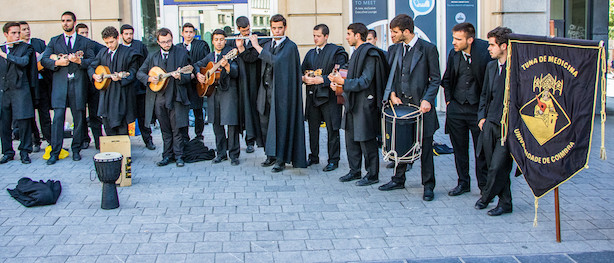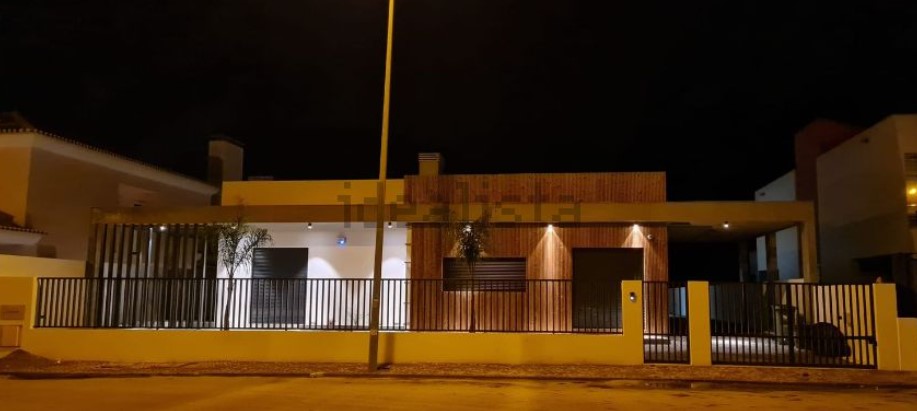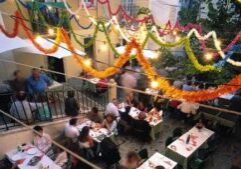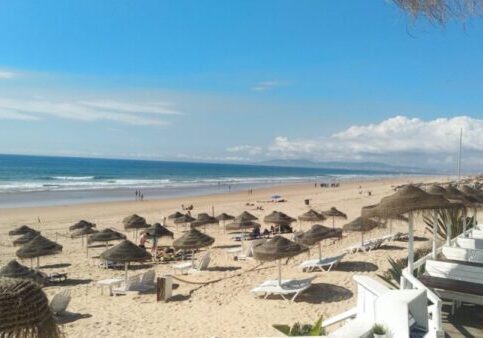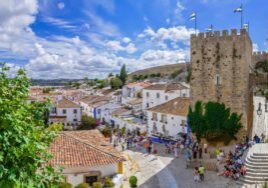Schooling in Portugal for French-speaking children: system, schools, costs, integration…
![]()
Following on from our last blog article on the fears that are holding you back in your plans to move to Portugal, many of you have highlighted the concerns you had about moving with your children because of schooling and integration. Many families are wondering what schooling is like in Portugal for French-speaking children?
French-speaking parents often think directly of French schools, by reflex: “My child is French, so let’s put him or her in a French school”. This is a good option, but it’s not the only one, and others are possible, even if your children only speak French at the moment.
The aim of this article is to inform and reassure you about your children’s schooling in Portugal. But also, to present you with the range of possibilities that you have as French-speaking parents for the schooling of your little ones.

Organization of the Portuguese education system
The school curriculum in Portugal is different from that in France. Here, the years are logically counted in order of years of study, from CP to Terminale:
- cP corresponds to the “primeiro ano”(first year),
- cE1, “segundo ano” (second year)
- and so on through to Terminale, which is the “decimo segundo ano”(twelfth year).
These equivalences are shown in the table below, which will probably help you.
The education system in Portugal
Schooling in Portugal is divided into different cycles. From birth to age 5, school is not compulsory. During this period, here are the possible schools for your children:
- Berçários” for babies from 3 to 11 months.
- Creches”, also known as “infantarios”, for children between 11 months and 3 years of age. There are both public and private creches. It’s best to book well in advance to be sure of getting a place. As for costs, in the public sector, the amount is calculated on the basis of household income and expenses, and you should expect to pay between 150 and 300 euros a month. Private crèches, on the other hand, cost between 300 and 450 euros a month.
- The “jardins da infância” are kindergartens for children aged 3 to 5. To help you find a “creche” or “jardin da infância”, this easy-to-use Portuguese website will list establishments near your home.
From the age of 6, school is compulsory in Portugal. Here’s how school is organized from primary level onwards:
- The1st ciclo ensino básico, equivalent to the first 4 years of primary school in France, from CP to CM1, for children aged 6 to 9.
- The2nd and3rd ciclo ensino básico, equivalent to collège, but lasts 5 years and starts at the equivalent of French CM2. Teaching is similar to that of collège in France, with one teacher for each subject and a main teacher. At the end of these 5 years, pupils sit a certificate of studies(= the equivalent of the brevet des collèges).
- The ensino secundario is the high school. This cycle lasts 3 years, at the end of which students sit the“Diploma de Ensino Secundário” exam, which corresponds to the Baccalaureate. On entry to “decimo ano”(the equivalent of seconde), students must choose between a general stream(scientific, economic or literary), a vocational stream(which can be followed through apprenticeship or sandwich courses) and an artistic stream(available only in certain high schools).
- Finally, there are the universities, with degrees similar to those in France: licence, maitrise and doctorat. Portugal has two distinct higher education systems: the university system and the polytechnic system.
Student orchestra in Portugal
The different types of schools for your children in Portugal: 3 options
Once you’re ready to take the plunge and move to Portugal as a family, you’ll need to choose a school for your children. There are 3 main options: Portuguese schools(public or private), French schools (private) and international schools (private). Your choice will take into account a number of factors:
- where you live in Portugal,
- your budget,
- your length of expatriation,
- whether or not you wish to integrate an international dimension into your child’s schooling,
- your assessment of the infrastructure,
- your first contacts with the school,
- and many other subjective criteria.
School in Portugal
1. Portuguese schools
Portuguese schools are obviously the ones you’ll find the most. As in France, there are both public and private schools. In public schools, priority is given to local residents. However, especially in the 2nd and 3rd cycles (junior high school), it’s possible to be accepted even if you don’t live in the neighborhood. For private schools, you choose the one you prefer. In both public and private Portuguese schools, classes are taught in Portuguese. In addition, for foreigners, Portuguese schools offer hours of “Português Língua Não Materna” Portuguese language classes, so that “foreign” children assimilate the language more quickly. French-speaking children will take a different Portuguese test from their Portuguese peers in the 9º ano (brevet des collèges) and 12º ano (baccalauréat).
a) Portuguese school rhythm
The Portuguese school system is very similar to that in France, with the school years from kindergarten to high school starting in September and ending in June, and the university years starting in October and ending in May. Depending on the age of the students, the school week lasts between 23 and 27 hours. Finally, school vacations are a little different. There are no vacations on All Saints’ Day and no winter vacations, but the summer vacations are longer, and in February there are 4 days (including weekends) for Carnival. Below is the vacation calendar for the 2017-2018 school year to give you an idea. It’s also worth noting that schools in Portugal often offer extracurricular activities at the end of the day and during school vacations.
2017-2018 school vacations calendar in Portugal
b) Cost of Portuguese schools
In public schools, you won’t have to pay much, but you should be aware that books have to be paid for from “cinco ano” (French CM2) upwards, so you’ll need to count on around 250 euros’ worth of books for the year and the canteen (around 1.50 euros per day). In private schools in Portugal, costs vary according to the school selected, and range from 350 to 550 euros per month all-inclusive, plus registration fees (between 150 and 350 euros).
As parents, you may be reluctant to send your children to a foreign school where they will be taught in a language they have no command of. However, children learn foreign languages infinitely more easily than adults. What’s more, integration into the culture is ultimately much quicker and easier when they are directly immersed in the local school. Later in this article, you’ll find testimonials from French-speaking families who put their children in Portuguese schools even though they didn’t speak the language. Social and language integration went very smoothly.
2. French schools in Portugal
In Portugal, there are two French schools offering education from kindergarten to high school. These are the Lycée français Charles Lepierre in Lisbon and the Lycée français Marius Latour in Porto. The majority of students are of French or Franco-Portuguese nationality. Classes are taught in French, but both schools also offer Portuguese courses to help students integrate into Portuguese society.
a) French school rhythm
The academic rhythm and program content are similar to those of French schools. Classes start in September and finish in June. School vacations are based on those in France.
b) Cost of French schools
You should expect to pay between 4,500 and 5,200 euros per year, plus a registration fee of around 600 euros. Detailed costs for the French school in Lisbon can be found here, and for the French school in Porto, here.
If you send your children to a French school, they’ll integrate very quickly, as they’ll find the same codes as in their usual schools in France, with classmates and teachers who speak the same language as they do. However, it may take longer for them to integrate into the environment outside the school and learn the local language. The parents I spoke to recommend French schools more to families moving to Portugal for a short time. Finally, it’s important to bear in mind that these schools are only in the major cities of Lisbon and Porto, and waiting lists are long.
3. International schools in Portugal
If you prefer an international environment, there are also international schools throughout the country, attended by both Portuguese and foreign students. These schools offer international programs such as the International Baccalaureate (I.B.), British GCSE and GCE examination systems and Cambridge University exam preparation. Courses are usually taught in English, and some schools even offer courses in Portuguese for younger students. These schools are often more expensive than others, but provide a “top-of-the-range” service:
- small classes,
- well-maintained infrastructure
- numerous extra-curricular activities,
- and a strong international environment.
a) Cost of international schools
Prices vary widely from one school to another, but you should expect to pay between 500 and 1,500 euros per month, with a registration fee of between 300 and 1,000 euros, depending on the school you choose.
Below is a non-exhaustive list of international schools in Portugal by region:
- In the North: The Oporto British School, CLIP – Colégio Luso Internacional do Porto, Colégio Luso-Francês
- Central Portugal: Colégio Luso-Internacional do Centro
- Lisbon and surroundings: St. Julian’s School, St. Peter’s School, Carlucci American International School of Lisbon
- In the South: Vilamoura International School, Vale Verde International School, Colégio Santiago Internacional
Recognition of Portuguese diplomas in France
If you choose to send your children to a Portuguese school, you’ll no doubt be wondering about the recognition of Portuguese diplomas in France.
As far as recognition of Portuguese diplomas is concerned, it’s important to note that there is no legal principle of equivalence between diplomas obtained abroad and French diplomas. However, an “attestation de reconnaissance de niveau d’études” (certificate of recognition of level of studies) can be obtained and will act as an “equivalence”. ENIC-NARIC is the only body authorized to issue attestations of diplomas obtained in a foreign country. Here’s the site to apply for an attestation online, and their e-mail address: enic-naric@ciep.fr
In 1998, several countries, including Portugal, signed up to the Bologna Process. This process enables European higher education diplomas to be recognized throughout Europe. Equivalence is based on ECTS(European Credit Transfer and Accumulation System) credits obtained during a student’s studies. These credits make it easier to read and compare the curricula of different European countries. These credits validate the work done by students (mid-term exams, internships, dissertations, etc.). Once obtained, they are definitively acquired and transferable to all European higher education establishments.
Testimonials from French-speaking parents who have sent their children to school in Portugal
In order to gather as much information as possible for this article on schooling in Portugal, and to help you plan your move to Portugal with your children, I interviewed two teachers and several French-speaking families. Here are two of the transcribed interviews. I’d like to take this opportunity to thank Carla, Bérengère, Maria, Arlette and Frédéric for their time.
Profile : Carla is French and the mother of two boys aged 6 and 10. She moved to Portugal in August 2017 and her children started school there in September 2017. Her eldest entered French CM2, the “5° ano” in Portugal and her youngest into CP, the “1° ano” here.
School choice: Carla’s children didn’t speak Portuguese before starting school. Carla had just bought a vacation notebook in Portuguese for the eldest to familiarize him with the language before he went back to school. Like many French people, Carla initially thought of sending her children to the French lycée in Lisbon, but living 50 km from the capital, she finally opted for Portuguese schools closer to where she lived. Today, she’s delighted with her choice. In her opinion, the Portuguese school has enabled her children to integrate better with Portuguese culture, and to learn the language very quickly. The eldest is in a state school and the youngest in a private one. She’s happy with both systems, although she’s thinking of changing the bigger one, not because she thinks the state school is bad, but because its infrastructure is old and there’s a lack of classrooms. Finally, Carla notes that the academic standard of Portuguese schools is very good, whether private or public, especially in English and math.
Enrolment procedures: The administrative documents may differ from one school to another, but often the documents to be provided are:
- school results for at least the last year (your child’s school file will be given to you by the school in France once you inform them of your move)
- your child’s“certificat de radiation/fin de scolarité ” from the school in France. The purpose of this certificate is to inform you that your child is no longer on the school roll in France. Normally, this document must be translated into Portuguese by a consulate-approved translator and stamped. In practice, Carla didn’t need to provide this document to any school, whether private or public.
Her children’s integration:
- The integration of the young est in private school went very well. From the very first day, the teacher introduced her son to the other pupils in the class, explaining that he was from France and didn’t yet speak Portuguese. Her son quickly adapted to the language. He is now learning to read and write in Portuguese, and speaks French at home.
- the integration of the older child , who is now in CM2, or “5th year” in Portugal, was more complicated at first. It’s important to remember that CM2 here is more like 6ème in France. Pupils no longer have just one teacher but several, lessons are more note-taking, and they are in the same school as their elders aged 11 to 15. It’s a big step in a student’s life, whether in France or abroad. What’s more, communication between the teachers was poor at first, as no one had been informed that her son was a foreigner and didn’t speak Portuguese. Carla then made an appointment with the main teacher, and from then on everything went smoothly. Today, after six months, her son speaks perfect Portuguese, has made many friends, and is in the top 5 of his class.
Carla’s advice :
- Remember to ask for the compulsory hour of Portuguese lessons for foreign students.
- For her eldest child, Carla chose from the outset to give him private lessons’ after school, known in Portugal as “explicações” and given in institutes often located near schools. These lessons cost around 5 euros per hour.
- Visit schools beforehand if possible to see the infrastructure
Profile : Frédéric is Belgian and the father of a 10-year-old boy. He moved to Portugal in the summer of 2017 and his son started at St Peters School, a private international school, in September 2017. He is in CM2 class, the “5° ano” in Portugal.
School choice: Like Carla, Frédéric first thought of enrolling his son in the French lycée in Lisbon, “by reflex” he explains. However, the French lycée was saturated with applications, so he looked at other possible options. His son didn’t speak Portuguese and barely a word of English, but Frédéric chose a private international school that taught in Portuguese, then integrated English classes over the years.
His steps in choosing the school and enrolling: Frédéric enrolled early, starting in February 2017 for the September 2017 school year. He went to Portugal, visited schools, and then registered.
Regarding the documents for enrolment, Frédéric had to ask the Portuguese school for a document certifying that his son was indeed enrolled in Portugalin order to send it to the Belgian Ministry of Education proving that his son was not unschooled. As far as the documents to be given to the school in Portugal were concerned, Frédéric only had to send them the school results for the last year studied by his son. Frédéric points out that the administrative procedures are straightforward, but that you have to apply early for private schools in order to secure places.
His son’s integration : His son was integrated into a class made up of half native Portuguese and half expatriate children, and the integration between students was very good. Similarly, contact with the teachers went very well, even if it was a little difficult at first, as his son didn’t understand Portuguese at all. As a parent, Frédéric explains that in the beginning you shouldn’t make the same demands as if your child were in his home country, and you need to encourage him regularly, after which progress can be seen very quickly.
Today, after six months, her son is regularly invited to his friends’ birthday parties, whether they are Portuguese or expatriate, and he is beginning to speak both Portuguese and English well. He’s managing to make himself understood, to read and understand his lessons, but still needs help with the more technical subjects like science, history..
Frédéric’s advice: Like all French speakers, we think directly of the French lycée for our children. Frédéric recommends the French lycée for families coming to Portugal for a “short-term” expatriation (2/3 years max), because in such cases, it may not be worth upsetting a child’s entire schooling. However, for a “long-term” expatriation, the families surveyed recommend Portuguese or international schools.
FAQ: Frequently Asked Questions
I haven’t been able to answer all the questions you’ve sent me. So here you’ll find the answers to three of the questions I did get some information on.
1. “What’s it like for autistic children?”
In Portugal, almost all disabled pupils attend mainstream schools. But different options are available, depending on the degree of disability.
For the least “severe” disabilities, the child is integrated into an ordinary class. They are often accompanied by an assistant (professor de ensino especial) who is there to look after the disabled pupil exclusively during lessons. There is no repetition, and progress and socialization are given priority over results. This integration of disabled children with other children is quite positive in the sense that there is no discrimination: children with or without disabilities are treated as equals and vice versa.
If the degree of disability is higher, the child can be integrated into “unidades de ensino estruturado”. Click on the regions below to see a list of these structures by region: units in the Nord region, the Centre region, units in the Lisbon region , units in the Alentej region and units in the Algarve region
Finally, there are other highly specialized structures, such as the CERCI Centro Especial de Reabilitação de Crianças Inadaptadas or the CECD Centro de Educação para o Cidadão com Deficiência.
2. “Is home schooling allowed? If so, under what conditions?”
Yes, home schooling is authorized in Portugal. We use the term “Ensino Doméstico” here, and it’s legal and possible for children between the classes of 1° ano and 12° ano, which are equivalent to the French years from CP to Terminale. However, you’ll still need to register with a public school in Portugal to take the compulsory exams at the end of each cycle, even if the child doesn’t attend school the rest of the time.
3. “Find out if there is a montessori school in Portugal, and if so, where and how much?”
For those unfamiliar with the Montessori method, you should know that it aims to provide children with suitable materials and leave them free to choose the activities they wish to do themselves, for as long as they wish. To find out more about this method, read Maria Montessori’s book “L’esprit absorbant de l’enfant”. In Portugal, there are schools using this method. They can be found in different regions of Portugal. Here’s a list of some schools using the Montessori method in Portugal, classified by region. As for the cost, I couldn’t find an exact figure.
In conclusion
As you may have noticed, there are many different options for your children’s schooling in Portugal. We often think directly of French schools, but the range is much wider. The fact that your child doesn’t speak Portuguese shouldn’t be a barrier to your choice. The various parents I spoke to had great fears about how their children would adapt, both socially and linguistically, and in the end these fears quickly dissipated. Their children integrated very quickly and quickly mastered the language.
Ready to move to Portugal with your family?
If you liked this article, please click on the “Like” button below and share it. And don’t forget to follow us on our social networks: our Facebook group “Amoureux du Portugal”, our Facebook page “Vivre au Portugal” and our Instagram “Vivre au Portugal”.
Receive our latest blog posts and our selection of properties for sale every month
* mandatory fieldFirst name * *Last name Telephone E-mail address * *Current city of residence Interests: *
- Buying a property in Portugal
- Renting a property in Portugal
- Nothing special in mind
Date of arrival in Portugal How can we help you? * * Please contact me:*
- Quickly please
- Later please
Region of interest *
- Almada
- Aroeira
- Seixal
- Setubal
- Other
You can view our Privacy Policy and Termsand Conditions here
Articles Populaires
dernières annonces

2 bedroom apartment with sea view, 10km from Lisbon and 2km from the beaches
Rua da Bica, 103Discover this magnificent 2 bedroom apartment with views of Arriba Fóssil and the sea, 2km…
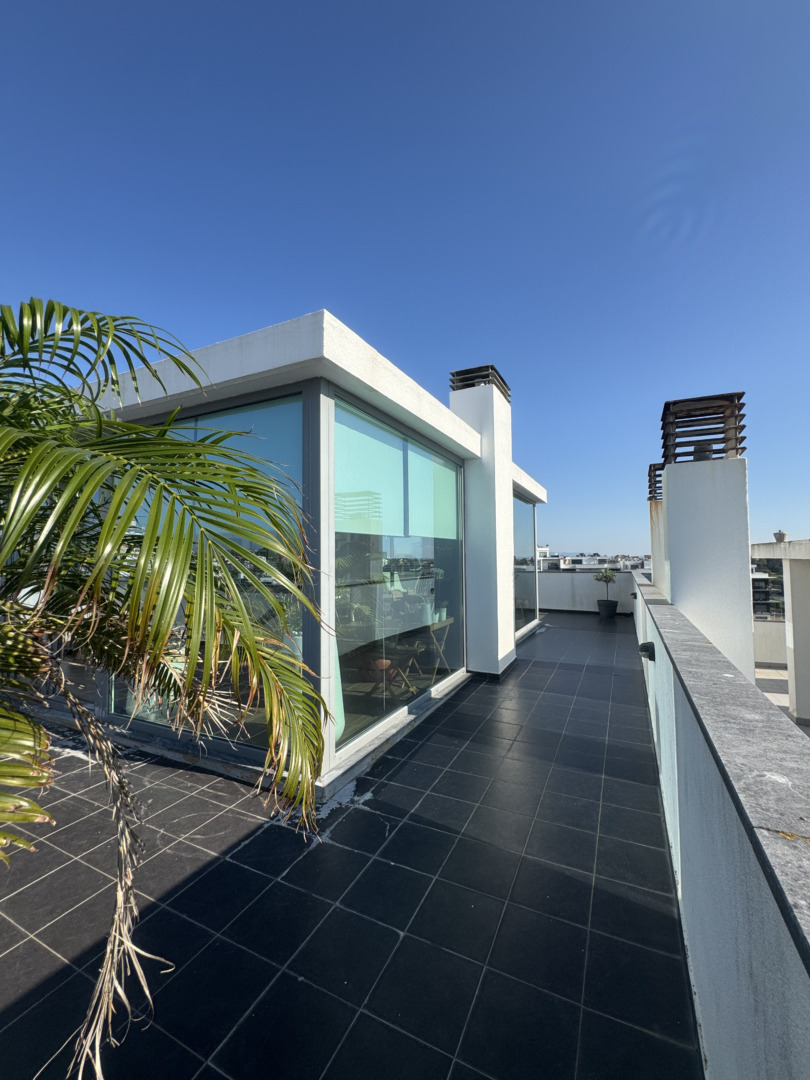
Duplex apartment with sea view 15 minutes from Lisbon
rua Santa Teresa 7Bedroom + duplex apartment with sea view and 15 minutes from Lisbon.
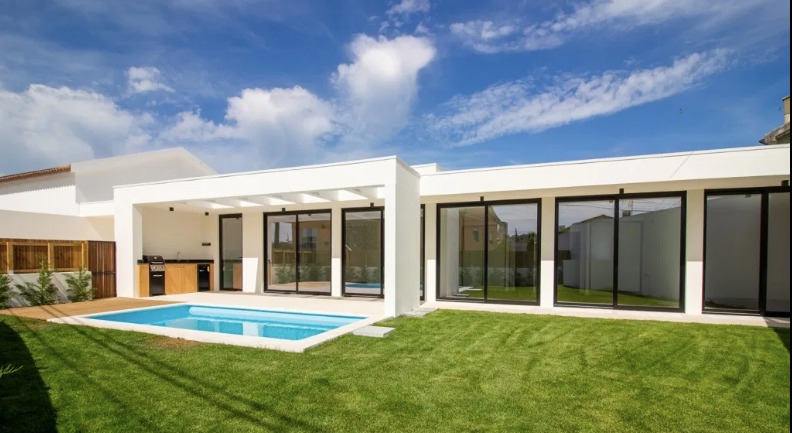
Single-storey house with swimming pool
Just a few meters from the magnificent bay of São Martinho do Porto, lies this…
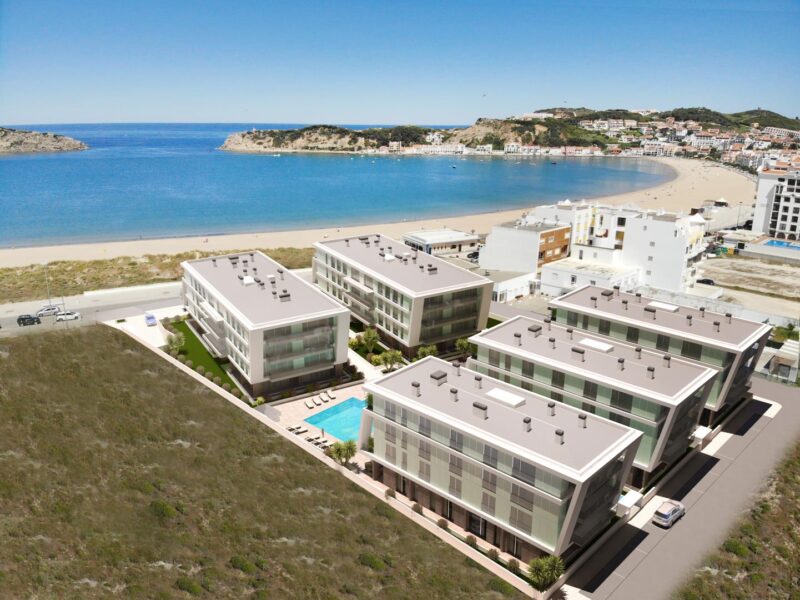
Condominium apartments facing the sea
São Martinho do PortoBeautiful apartments in São Martinho do Porto “Janela da Baía”! Located in the heart of…
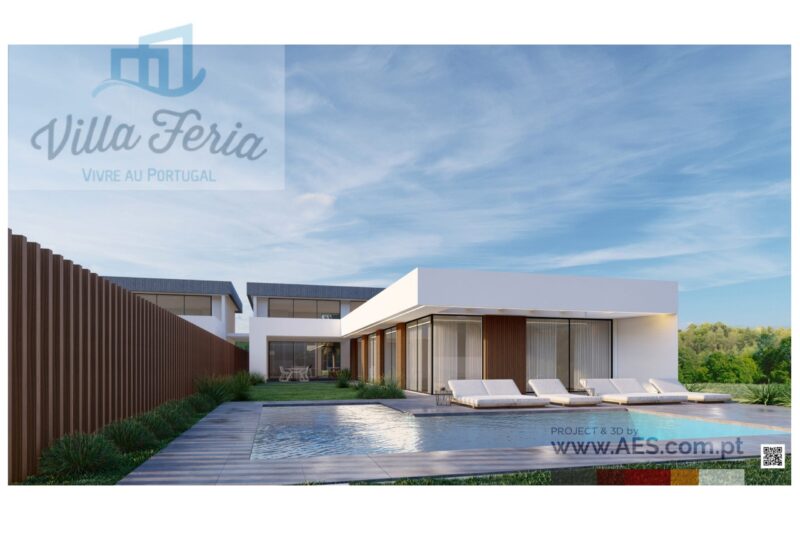
Villa already finished and ready to move in: 4-suite bungalow on 750m2 plot in a quiet area of Azeitão
Rua de ParisHouse already finished and ready to move into! Close to shops and services, quick access…
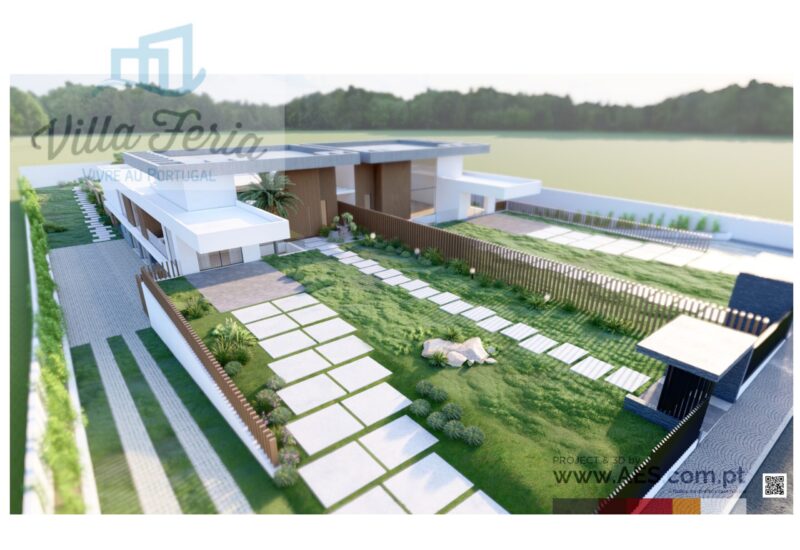
Magnificent house with basement, indoor and outdoor pool in Verdizela/Aroeira
Verdizela/AroeiraNew turnkey project: magnificent single-storey villa, 498m2 in surface area, high-end finishes on a 1875m2…

Luxury apartment on the edge of a nature reserve
Your modern, spacious apartment between the beach and Lisbon’s capital. – Beach 5min – Golf…
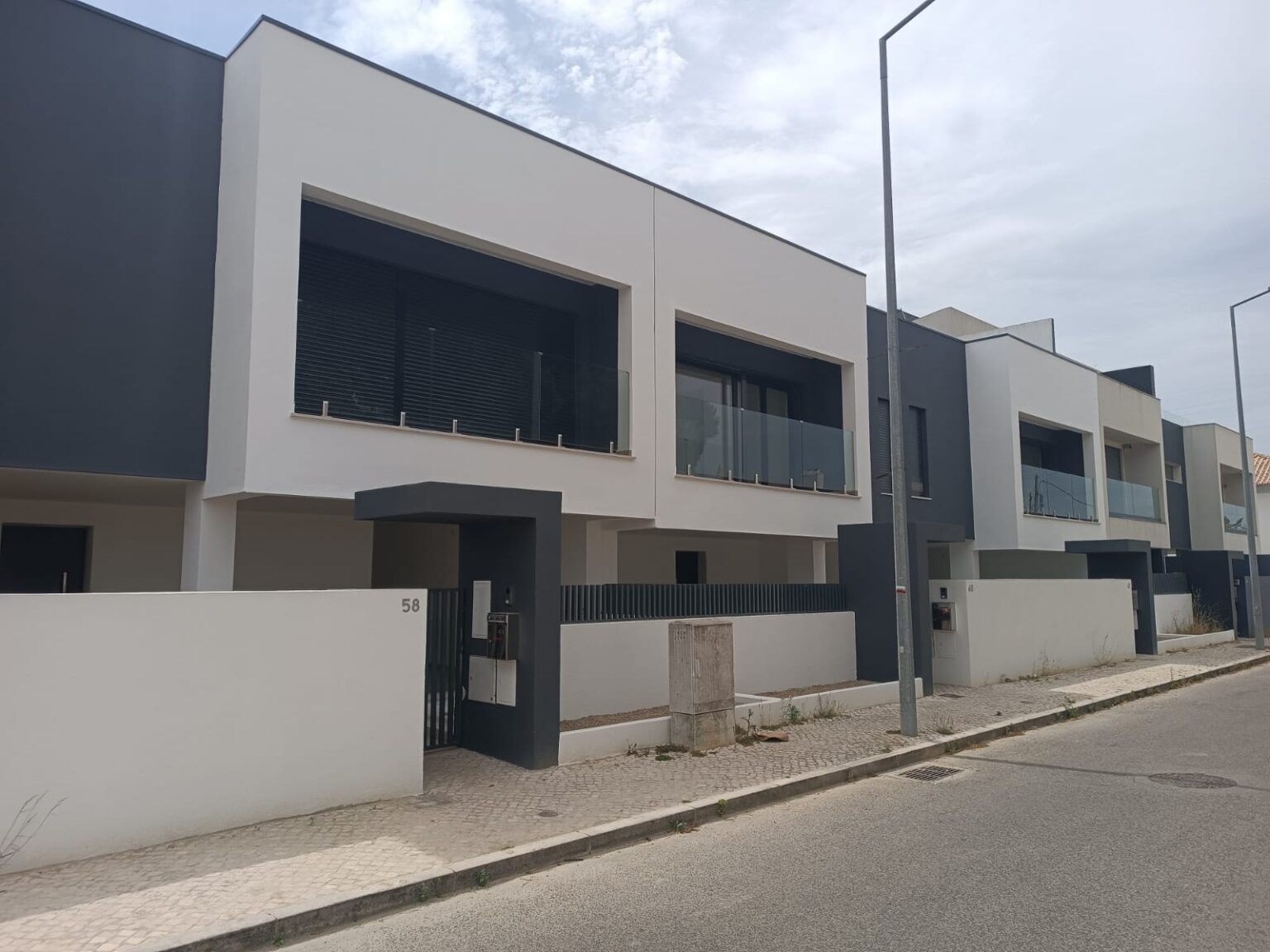
House T3 1 10 min from Lisbon and 5 min from the beaches
PêraREADY TO MOVE IN! New T3 1 ready-to-live-in house in a quiet, rural neighborhood with…

4 bedroom villa with pool and jacuzzi in Aroeira
rua são miguelModern, minimalist architect-designed house with exceptional details in a quiet location in Aroeira 2-storey house…
Inscrivez-vous à notre newsletter
Recevez chaque mois les derniers articles de notre blog "la vie au Portugal" et notre sélection de biens immobiliers à vendre.


